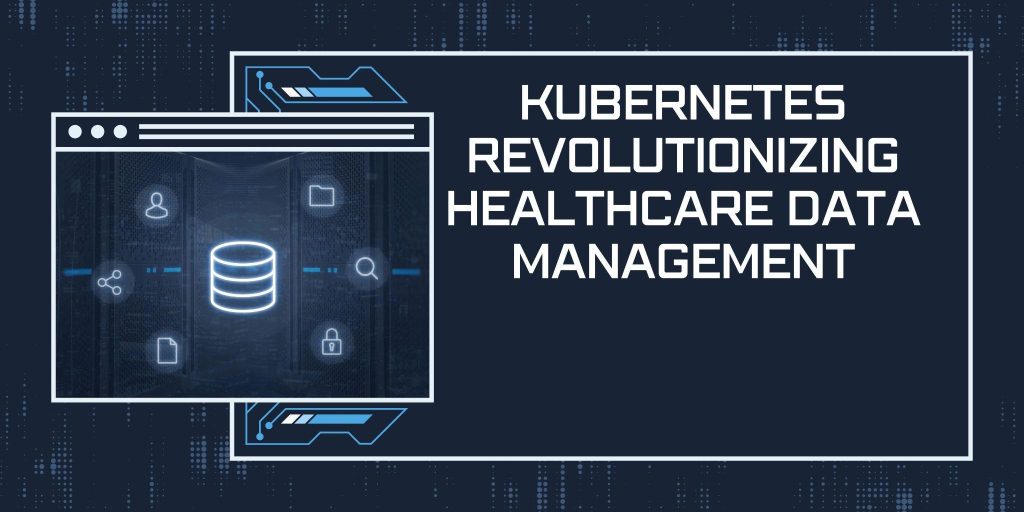Healthcare organizations are experiencing a massive increase in data generation, challenging traditional data management systems. Kubernetes has emerged as a game-changing solution, offering enhanced reliability and scalability for managing healthcare data. It streamlines the deployment, scaling, and management of complex medical software ecosystems. Shiva Kumar Chinnam, an expert in healthcare IT, delves into how Kubernetes is revolutionizing healthcare data management by providing innovative features that address key industry challenges, ensuring improved performance and patient care.
Kubernetes in Healthcare: A Game Changer
Kubernetes, an open-source container orchestration platform, offers a robust framework for deploying, scaling, and managing containerized applications in healthcare. Its architecture comprises core components such as the control plane, worker nodes, and containers, which ensure efficient orchestration of complex healthcare software ecosystems. Kubernetes has rapidly gained traction in the healthcare sector, with 78% of healthcare IT leaders recognizing its importance for digital transformation.
Ensuring Reliability with Kubernetes
One of the main challenges in healthcare data management is ensuring the continuous operation of critical services. Kubernetes addresses this with features like automated scaling, self-healing mechanisms, and rolling updates. Automated scaling allows the system to adapt to fluctuating workloads, such as increased patient traffic during public health crises. Self-healing mechanisms minimize disruptions by automatically replacing failed containers, ensuring the continuous availability of patient data. Rolling updates facilitate the seamless deployment of new features without interrupting patient care.
Enhancing Security and Compliance
Handling sensitive patient data securely is paramount in healthcare. Kubernetes offers robust security features, including encryption at rest and in transit, role-based access control (RBAC), and integration with key management systems. These capabilities enable healthcare organizations to comply with strict regulations like HIPAA while safeguarding patient privacy. Kubernetes’ native load balancing ensures consistent performance and high availability, which is critical for high-traffic healthcare applications like telemedicine platforms.
Optimizing Performance for Large Data Volumes
Healthcare applications often deal with large data volumes, such as medical imaging and genomic information. Kubernetes excels in managing these large-scale data processing tasks through its ability to scale horizontally across multiple nodes. It optimizes resource allocation and ensures that critical applications, like real-time patient monitoring systems, receive adequate resources. This performance optimization is vital for reducing processing times in data-intensive tasks, enhancing overall system efficiency.
Monitoring and Logging for Enhanced Visibility
Kubernetes integrates seamlessly with various monitoring tools, providing comprehensive visibility into cluster health and application performance. Tools like Prometheus and Grafana can be deployed within Kubernetes clusters to offer real-time metrics on resource usage and system health. These monitoring capabilities, combined with detailed logging and auditing features, enable healthcare organizations to maintain compliance with regulations and proactively address potential issues before they impact patient care.
Navigating Challenges in Adoption
While Kubernetes offers numerous benefits, its adoption in healthcare comes with challenges. Ensuring data privacy and regulatory compliance requires careful configuration and additional security measures. The skills gap in container orchestration and cloud-native technologies is another barrier, as many healthcare organizations struggle to recruit and train staff with the necessary expertise. Additionally, migrating legacy healthcare systems to a Kubernetes environment can be complex, necessitating significant refactoring or redesign.
Future Trends: AI and Edge Computing
Looking ahead, Kubernetes is poised to integrate more deeply with emerging technologies like AI and edge computing in healthcare. Its ability to manage GPU resources makes it an ideal platform for deploying AI-powered diagnostic tools and predictive analytics. Kubernetes’ adaptability for edge deployments allows healthcare organizations to process data closer to the source, such as in remote clinics or ambulances, improving response times and reducing bandwidth requirements. These trends indicate that Kubernetes will continue to shape the future of healthcare IT infrastructure.
In conclusion, Kubernetes is revolutionizing healthcare data management, offering robust solutions for reliability, security, and performance optimization. Its ability to handle large data volumes, ensure compliance, and integrate with advanced technologies like AI positions it as a cornerstone for modern healthcare IT infrastructure. Despite challenges in adoption, including regulatory compliance and skills gaps, Kubernetes’ potential to enhance operational efficiency and patient care is immense. As healthcare evolves and data volumes grow, Kubernetes’ role in delivering efficient and responsive healthcare services will only become more significant. Shiva Kumar Chinnam‘s insights underscore the importance of Kubernetes in shaping the future of healthcare, suggesting that its integration will drive major advancements in how healthcare organizations manage, secure, and utilize their data for improved patient outcomes.
